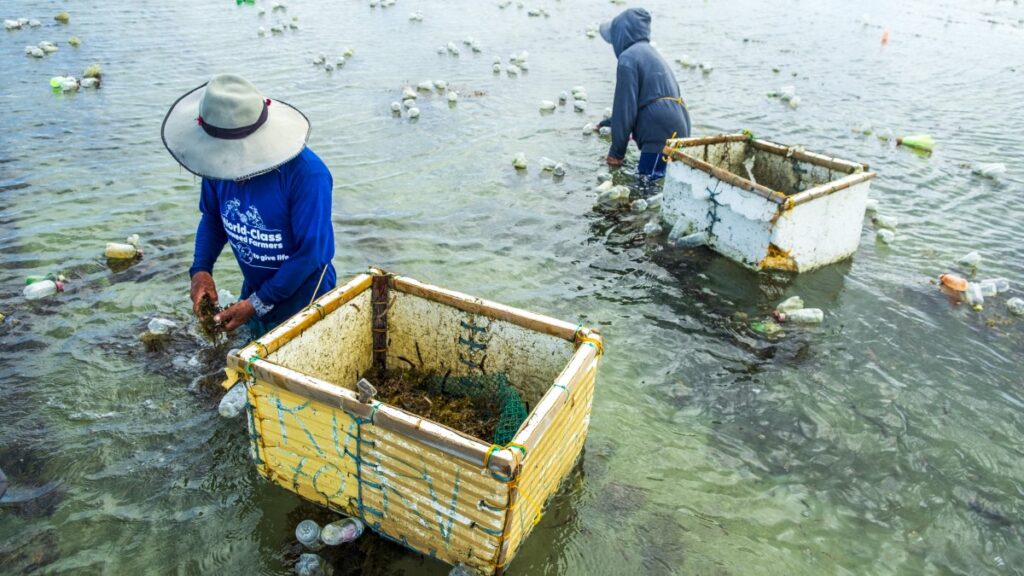

As climate impacts intensify, a rising tide of global climate finance is still missing the mark.
A new report released today from The Earthshot Prize, with contributions from CGAP and supported by the Mastercard Center for Inclusive Growth, reveals that communities most vulnerable to climate impacts are often the least economically secure, remaining overlooked by current funding mechanisms.
Adaptation finance accounts for just 5% of total climate finance, and of this, less than 17% has a specific focus on local communities, creating a compounding effect of financial precarity, climate risk and inequality and missing a crucial opportunity to scale community-led initiatives, which are often the most attuned to local needs and best-placed to deliver effective, sustainable solutions.
Findings show that investing in community-led adaptation is not only more equitable, but also cost-effective and delivers ‘triple dividends’: reducing losses, spurring growth, and driving broader development gains. Evidence cited in the report uncovers that for every $1 invested in disaster risk reduction, $13 is returned in savings, showing the economic efficiency of proactive, locally driven approaches.
The new report, Unlocking Critical Finance for Climate and Economic Resilience, reveals this untapped opportunity. Drawing on a first-of-its-kind analysis of over 2,200 innovations nominated to The Earthshot Prize, and a deep dive into proven financial mechanisms, the report has a unique dual focus — highlighting the innovations advancing climate and economic resilience, and the financial mechanisms making them possible.
This report is a testament to the power of collaboration and an essential resource for governments, financial institutions, private sector leaders, and development partners.
It offers a blueprint for unlocking the capital and collective action necessary to build a future where climate resilience and economic opportunity are not just aspirations, but lived realities for all.
New adaptation models are already starting to make an impact on the ground, the report shows. One such model included in the report is Coast 4C, an initiative working with seaweed farmers in the Philippines to restore marine ecosystems while generating inclusive economic growth.
By combining ecological restoration with access to finance, training, and digital tools, Coast 4C has:
This is just one of many examples showing that locally-led and commercially viable models are already transforming climate-vulnerable economies — and offering among the highest returns on investment.
While the current funding gap is too big for the status quo to fill – estimates suggest an additional $5 trillion to $11 trillion is needed annually to mitigate and adapt to climate impacts – new finance solutions are emerging. The second half of the report explores how innovative finance mechanisms are already channelling capital to where it matters most, and how they can be scaled. These include:
· Blended finance structures that reduce risk and enable investment in underserved markets;
· Community-based capital intermediaries like cooperatives and local financial institutions;
· Parametric insurance and outcome-based finance models that reward measurable results;
· Carbon-linked revenue models that unlock new income streams tied to ecological outcomes.
Around the world, we know that there are innovations that support climate and economic resilience. Many of these solutions are led by micro and small enterprises in climate-vulnerable economies, who understand the challenges deeply.
To make sure that these solutions can benefit everyone and be scaled sustainably, we are working to ensure these innovators are met with the capital, technical and wrap-around support needed to not only survive but thrive.
The report concludes with recommendations for funders and investors on how to unlock and direct capital toward the highest-impact innovations. It urges a shift in how risk is assessed, how funding flows are structured, and how local actors are empowered.
The Earthshot Prize and the Mastercard Center for Inclusive Growth are calling on capital allocators — from philanthropies to institutional investors — to take action.
“We know that climate and economic resilience go hand in hand,” said Dalal. “The innovations exist. The capital exists. Now is the time to connect the two and scale the solutions that are already building a better future.”
Download the report from our microsite for insights from innovators and investors on the frontline of inclusive, community-led climate action.